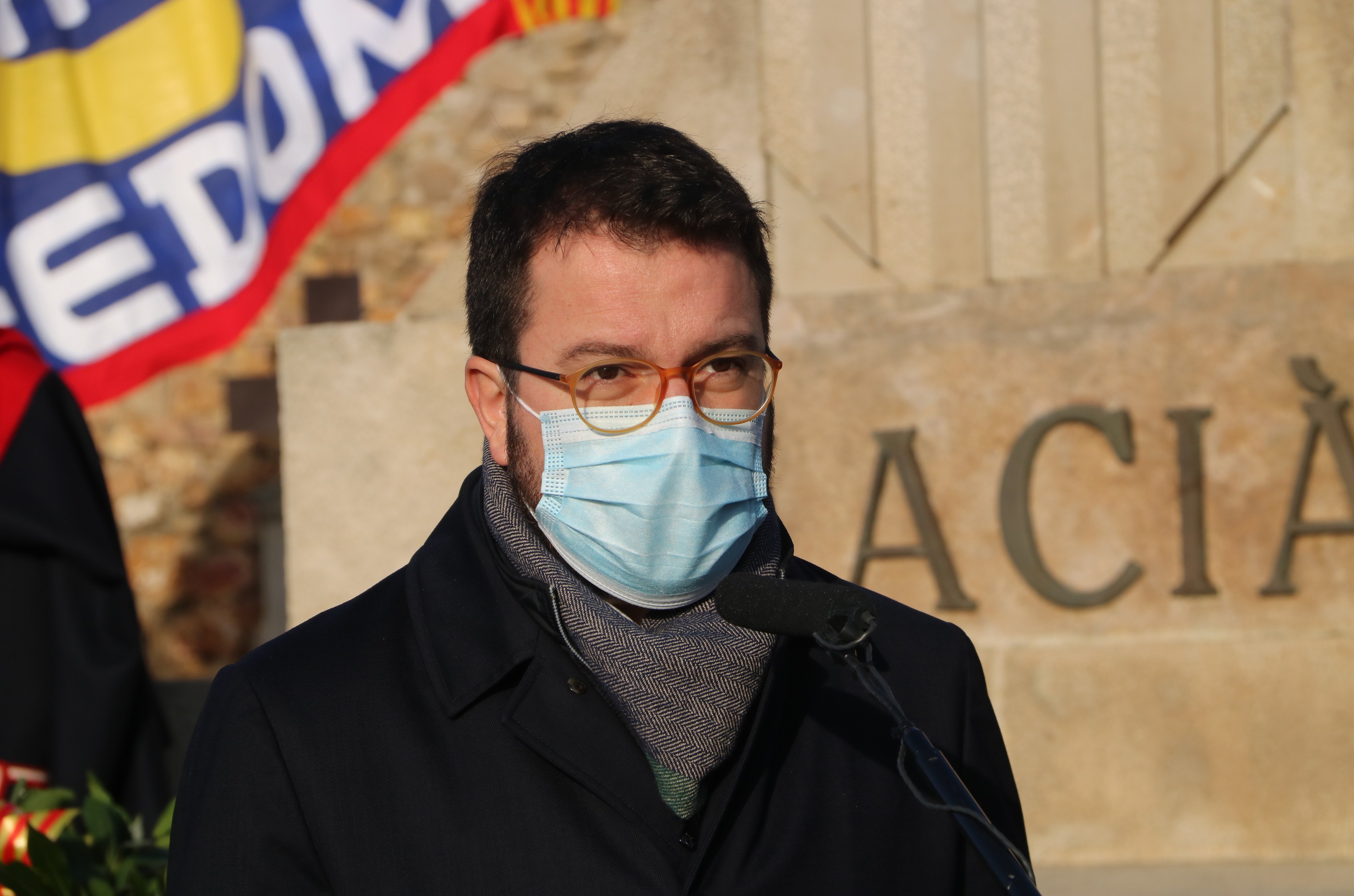Acting Catalan president, Pere Aragonès, has today asked the Spanish prime minister by letter for direct aid for the sectors most affected by the coronavirus restrictions, those of retail, restaurants and hospitality. He also urged the Pedro Sánchez government to take measures affecting labour, such as making distance working mandatory in all jobs where it is possible and the extension of the ERTO furlough scheme.
Aragonès, who is also Catalan minister of economy and finance, defined the requests made in the letter as "decisions that are the responsibility of the Spanish government" and that are necessary in order to confidently tackle the restrictions that the Catalan government approved earlier this week and which will be maintained until 17th January.
Direct assistance
Aragonès calls in the letter for direct aid for retail, restaurants and hospitality, the sectors worst hit by the restrictions to curb the spread of the virus, which the acting president has defined as "difficult but necessary measures." Aragonès believes that the impositions must be accompanied by financial assistance that makes the restrictions sustainable over time and compensates the sectors for their sacrifices. He also asserts that the tax measures laid down so far by the Spanish government, relating to social security or financial guarantees, are "insufficient".
The acting vice-president believes that it is up to the Spanish government, as the Spanish state's tax collector and with the greatest economic capacity, to launch an aid plan, as other European countries have done. In this regard, in an interview with the EFE news agency, he has backed a plan based on a European model for assistance to businesses that would provide assistance to a value of 70-80% of the previous year's turnover.
Aragonès, ERC candidate in the Catalan elections, said yesterday that "Catalonia is not Germany, but if it were an independent state we would have the resources to deal with the loss of income in the affected sectors."
Distance working and the ERTO plans
Aragonès also urged the Spanish government to use its powers to make distance working compulsory in all workplaces where it is possible or, failing that, to immediately authorize the Catalan authorities to do so. In the letter, the minister explains that the current regulations established by the central government characterise distance working as voluntary and not "an obligation in accordance with public health needs."
According to the vice-president, if the percentage of distance working were raised "from the current 8 or 10% to 30%", mobility could be reduced and some of the other restrictions to curb the pandemic could be avoided.
With regard to the ERTO furlough plans, which provide crucial assistance for tens of thousands of people in Catalonia in sectors affected by the pandemic, Aragonès asked Sánchez to extend beyond 31st January the possibility of an ERTO on the grounds of force majeure and proposed to extend this economic tool until 30th June. The central government itself has today proposed to extend ERTOs until May 31st, a date on which there is "quite a consensus" between executive and social agents.
Aragonès appealed to the Spanish government not to "neglect its functions" and to take the necessary measures "thinking of the people of Catalonia". The economy and finance minister expressed his desire to accompany the restrictions with financial compensation "despite all the limitations imposed on us by the state legislative framework" and reminded Sánchez that the goal of the Catalan government is to "overcome these limitations and to have all the tools of an independent state".

